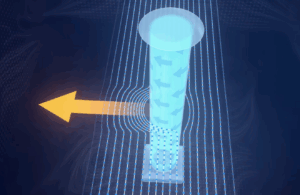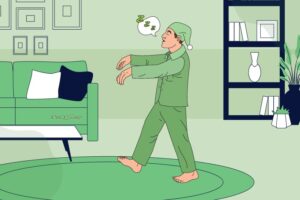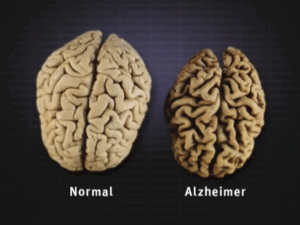Understanding the Body’s Sleep Regulator
Why is it that after the sun sets, your eyelids begin to feel heavy, yet the morning light wakes you almost instantly? The answer lies in a powerful chemical substance that acts as a messenger molecule: the melatonin hormone. Often referred to as the body’s “sleep hormone,” melatonin acts as an internal clock, guiding the daily rhythm of sleep and wakefulness with remarkable precision.
Melatonin is secreted by the pineal gland, a small structure in the brain that responds to changes in light exposure. Its release increases in the evening, signaling to the body that it is time to prepare for rest, and decreases in the presence of daylight, promoting wakefulness. This cycle is part of the circadian rhythm, the body’s 24-hour internal clock that governs essential processes such as sleep, alertness, and metabolism. Once released, melatonin stimulates the hypothalamus, a region of the forebrain which reduces blood pressure, lowers body temperature, and regulates mood, allowing the body to transition into rest. Beyond its role in sleep, melatonin also contributes to reproductive health by regulating menstrual cycles, and emerging research suggests it may protect brain cells from damage linked to neurodegenerative diseases such as Alzheimer’s and Parkinson’s (1).
The melatonin produced by the body is known as endogenous melatonin while exogenous melatonin refers to the synthetic version manufactured in laboratories and sold as supplements (1). These supplements have become increasingly popular, particularly for individuals struggling with sleep disturbances. However, melatonin supplements are not instant sedatives. In the body, melatonin levels naturally begin to rise 1-3 hours before bedtime, so supplements must be timed to align with this rhythm (2). For example, a person who wants to fall asleep at 11 pm should take melatonin around 8-10 pm. Because exposure to blue light from screens can interfere with melatonin production, experts recommend limiting electronic device use before sleep (3).

While many people purchase melatonin over the counter, its most effective uses are for specific conditions. Physicians may recommend it for delayed sleep phase syndrome which is a disorder that shifts in your biological clock that makes it difficult to fall asleep. It may also be used for patients that have circadian rhythm disorders in blind individuals, insomnia, jet lag, shift work disorder, and certain pediatric sleep disorders (4, 2, 5). For insomnia, exogenous melatonin may reduce the time to fall asleep, though improvements in overall sleep quality are usually modest. Still, experts caution that supplements should not replace healthy habits. Good sleep hygiene, such as maintaining a consistent bedtime, waking at the same hour daily, and reducing screen exposure before bed is considered the foundation of long-term sleep health (6, 3).
When using melatonin, both timing and dosage are critical. Research suggests that relatively small amounts (0.3 to 1 mg) are often sufficient. Higher doses rarely improve sleep and may instead cause adverse effects such as headaches, nausea, daytime drowsiness, reduced body temperature or worsening insomnia (2). Short-term use of melatonin appears safe for most individuals but further studies are needed to fully understand the implications of long-term use (3, 5). Sustained-release forms of melatonin have also been developed to better mimic the body’s natural overnight cycle by releasing the hormone gradually, ensuring levels remain elevated during sleep but taper off by morning.
Melatonin, while a useful supplement that many people take to catch up on sleep, should be used in moderation due to its potential negative effects on the brain’s natural sleep regulation system. Instead it’s healthier to focus on building consistent sleep habits such as maintaining a regular bedtime, limiting screen time before bed, creating a calm, dark sleeping environment.
Images
References
- Cleveland Clinic. (2022, May 7). Melatonin: What It Is & Function. Cleveland Clinic. https://my.clevelandclinic.org/health/articles/23411-melatonin
- The Truth About Taking Melatonin to Help You Sleep. (n.d.). Www.uhhospitals.org. https://www.uhhospitals.org/blog/articles/2018/03/enter-sandman-the-truth-about-melatonin
- Melatonin and your sleep: Is it safe, what are the side effects and how does it work? Cultivating-Health; UC Davis Health. https://health.ucdavis.edu/blog/cultivating-health/melatonin-and-your-sleep-is-it-safe-what-are-the-side-effects-and-how-does-it-work/2025/02
- Mayo Clinic. (2021, March 3). Melatonin. Mayo Clinic. https://www.mayoclinic.org/drugs-supplements-melatonin/art-20363071
- Does Melatonin Help with Insomnia? | Mass General Brigham. (n.d.). Www.massgeneralbrigham.org. https://www.massgeneralbrigham.org/en/about/newsroom/articles/will-melatonin-work-for-insomnia
- John Hopkins Medicine. (2012). Melatonin for Sleep: Does It Work? Johns Hopkins Medicine. https://www.hopkinsmedicine.org/health/wellness-and-prevention/melatonin-for-sleep-does-it-workBlumberg, D. (2025, February 5).






Comments are closed.